 Short List with host Bob Naujoks
Short List with host Bob Naujoks
Monday – Friday at 8:35 AM and Saturday at 7 AM
Corridor Shortlist: Carlis Faurot
Violinist Carlis Faurot began playing at age three. By 16, he was gigging in coffeehouses. He moved to Cedar Rapids as a young man, and struck up a friendship with guitarist Mike Maas. The two of them have been making jazz, blues, and all kinds of music ever since. Hear the Short List this week to learn about this versatile musician. Tune in weekday mornings at 8:35 and Saturday morning at 7:00. Or log on with our free mobile app.
Jazz Corner of the World with host Craig Kessler
Monday, 6:00 PM – 10:00 PM
Blue Note Records in 1958 – Part Two
Craig continues his look back 60 years with another visit to Alfred Lion’s BLUE NOTE RECORDS in 1958. This second of two shows covers the last half of 1958. We’ll hear classic Blue Note releases from the likes of Jimmy Smith, Bud Powell, Lou Donaldson, Dizzy Reece, Donald Byrd, and others. Don’t miss this one!
 Jazz Profiles with host Nancy Wilson
Jazz Profiles with host Nancy Wilson
Monday at 11:00 PM
Jackie McLean: Jackie’s Bag
In five decades of jazz, Jackie McLean lived the quintessential jazz survivor’s life. A veteran of bebop, he emerged from the shadow of Charlie Parker and drugs to make a music bristling with passion and a Hemingway-esque direction. McLean debuted on Miles Davis’ 1951 album Dig!, and also led his own groups. These raw edged, taut units included Herbie Hancock, Tony Williams, Billy Higgens, Donald Byrd, Lee Morgan, Roy Haynes, and others.
Wednesday Night Special
6:00 PM
The United States Air Force Band “Airmen of Note” with Peter Erskine
KCCK celebrates our armed forces again this week with a concert by the United States Air Force Band. This week, veteran drummer Peter Erskine takes the stage as special guest. Erskine has been a member of Steps Ahead and Weather Report, and has played alongside a who’s-who of legendary artists. He joins the “Airmen of Note” for a celebration of their Jazz Heritage Series.


Jazz Night in America with host Christian McBride
Thursday at 11:00 PM
The (New) Bad Plus: The Band That Never Stops
It isn’t typically news when a jazz group makes a change in personnel. But The Bad Plus isn’t a typical jazz group, and its announcement, this time last year, landed like a bombshell. In short: Ethan Iverson, the band’s pianist, would be leaving to pursue his own projects. Orrin Evans, an esteemed peer, would be stepping in. For a group that has always stood for musical collectivism — and never accepted any substitutions — this was a shakeup of existential proportions. Jazz Night in America kept up with The Bad Plus as it made this momentous transition.
Jazz Corner of the World with host Craig Kessler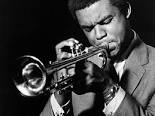
Saturday, Noon – 4:00 PM and Monday, 6:00 PM – 10:00 PM
Freddie Hubbard’s Blue Note Years
Craig takes another look at trumpet master Freddie Hubbard, this time through his Blue Note releases. We’ll hear records that feature Freddie as a leader, as well as many side-man appearances with artists like Art Blakey, Eric Dolphy, Kenny Drew, Dexter Gordon, Herbie Hancock, Wayne Shorter, and others!
KCCK’s Midnight CD
The Monday – Sunday Midnight CD for this week can be found at:
http://www.kcck.org/midnight-cd/

 Short List with host Bob Naujoks
Short List with host Bob Naujoks 
 Jazz Profiles with host Nancy Wilson
Jazz Profiles with host Nancy Wilson 





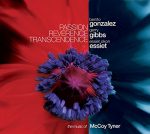 ek, pianist Benito Gonzalez, drummer Gerry Gibbs and bassist Essiet Okon Essiet tackle the music of McCoy Tyner on “Passion Reverence Transcendence”.
ek, pianist Benito Gonzalez, drummer Gerry Gibbs and bassist Essiet Okon Essiet tackle the music of McCoy Tyner on “Passion Reverence Transcendence”.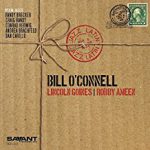 s up friends like Randy Brecker, Craig Handy, Conrad Herwig and Andrea Brachfeld for “Jazz Latin”.
s up friends like Randy Brecker, Craig Handy, Conrad Herwig and Andrea Brachfeld for “Jazz Latin”. Trumpeter Eddie Henderson includes Kenny Barron and alto saxophonist Donald Harrison in his quintet for “Be Cool.”
Trumpeter Eddie Henderson includes Kenny Barron and alto saxophonist Donald Harrison in his quintet for “Be Cool.” Short List with host Bob Naujoks
Short List with host Bob Naujoks 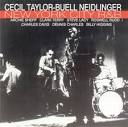
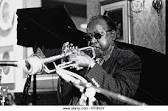 Jazz Profiles with host Nancy Wilson
Jazz Profiles with host Nancy Wilson  Wednesday Night Special
Wednesday Night Special


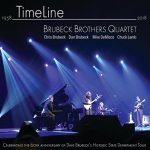

 Finzer explores the mysteries of unexpected destinations with his new album, “No Arrival.”
Finzer explores the mysteries of unexpected destinations with his new album, “No Arrival.”